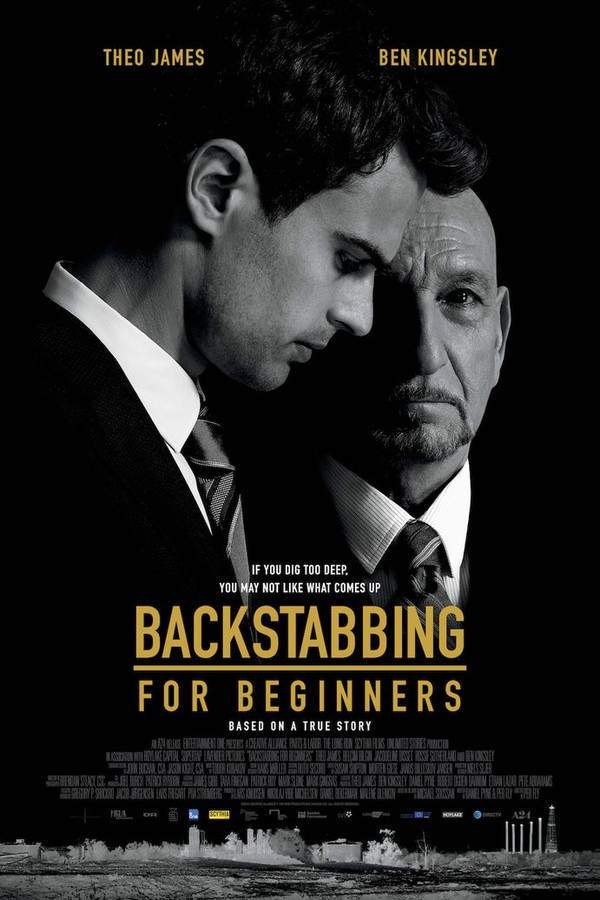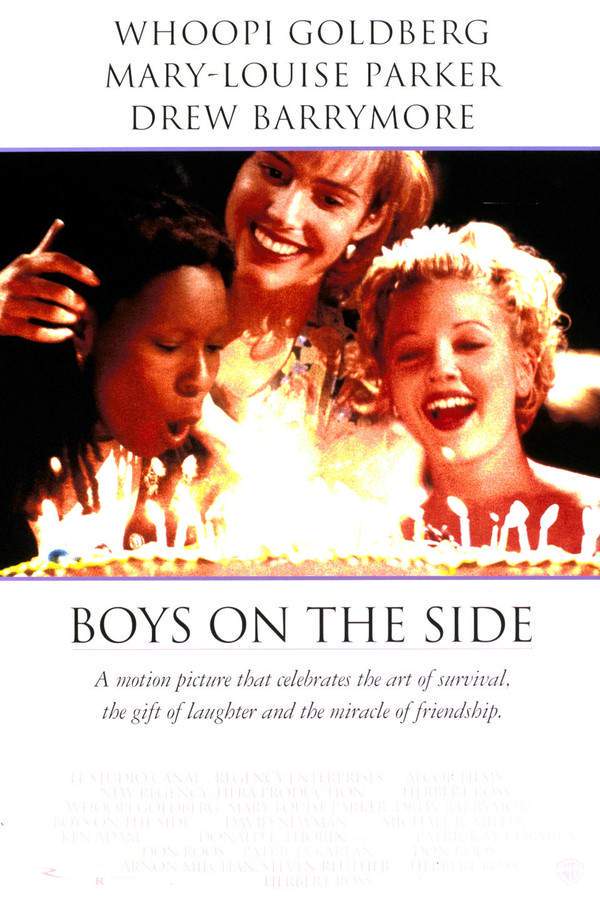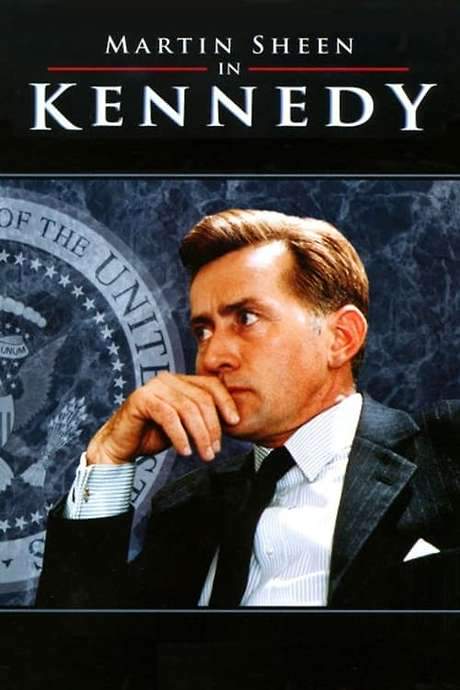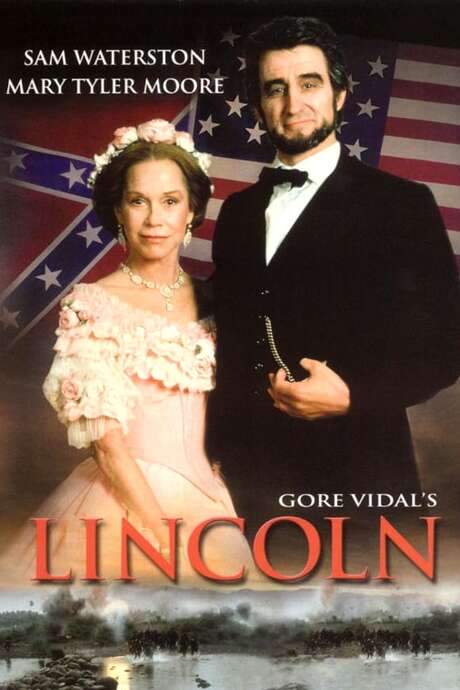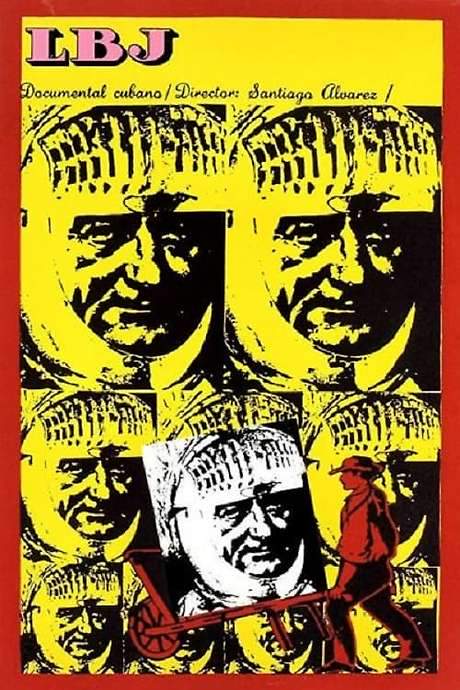
LBJ
This biographical drama portrays the life of Lyndon Baines Johnson, from his time as a powerful figure on Capitol Hill to his sudden ascension to the presidency. Following the tragic death of John F. Kennedy, Johnson is thrust into the role of President, forcing him to navigate immense challenges and confront the complexities of leadership while grappling with the profound responsibility of the office. Woody Harrelson delivers a compelling performance as the controversial figure.
Warning: spoilers below!
Haven’t seen LBJ yet? This summary contains major spoilers. Bookmark the page, watch the movie, and come back for the full breakdown. If you're ready, scroll on and relive the story!
LBJ (2017) – Full Plot Summary & Ending Explained
Read the complete plot breakdown of LBJ (2017), including all key story events, major twists, and the ending explained in detail. Discover what really happened—and what it all means.
The film explores the tumultuous journey of Vice President Lyndon B. Johnson, portrayed by Woody Harrelson, who unexpectedly ascends to the presidency following the tragic assassination of John F. Kennedy, played by Jeffrey Donovan, on November 22, 1963. On that fateful day in Dallas, Texas, while JFK is riding in the first car with his wife Jacqueline Kennedy, portrayed by Kim Allen, LBJ finds himself in the third car alongside his wife Lady Bird Johnson, portrayed by Jennifer Jason Leigh. It’s apparent that LBJ is often overshadowed by JFK’s popularity among the public, which adds to his discomfort of playing second fiddle in the world of politics.
Complicating matters, Texas Senator Ralph Yarborough, played by Bill Pullman, has a contentious relationship with LBJ, having previously refused to share a car with him during the infamous motorcade. Their history is steeped in conflicts, especially since Yarborough did not endorse LBJ’s farm support bill four years prior and openly supported JFK’s presidential campaign, stating that he had more in common with Kennedy.
In a flashback sequence, Robert F. Kennedy, portrayed by Michael Stahl-David, questions LBJ during a hunting trip about his presidential ambitions—a question LBJ denies at that moment, only to later discover that campaign posters plastered across Texas had prematurely announced his candidacy without his consent. Anger and trepidation wash over him as he fears a lack of public affection may doom his efforts.
As pressures mount, LBJ’s advisors eventually convince him to enter the race; however, he suffers a disappointing loss to JFK in the Democratic primaries. In a strategic move, JFK offers LBJ the vice presidency, believing that securing Southern votes is key for his presidential bid, despite his advisors warning him that historically, very few vice presidents successfully transitioned to presidency. Nevertheless, LBJ takes the opportunity, drawing upon his political ambitions.
Following JFK’s victory, LBJ finds himself yearning for greater authority, requesting oversight of critical departments like the CIA and FBI. Complicating this dynamic is Kenneth O’Donnell, portrayed by Michael Mosley, a close ally of Robert who is equally disdainful of LBJ. JFK assigns Kenneth the task of managing LBJ to prevent him from stepping out of line.
To further occupy LBJ, JFK places him in charge of the Federal Equal Employment Committee, a tumultuous role that has previously thwarted several presidents due to the deeply rooted divisions between Northern and Southern interests. LBJ, however, sees this as a strategic opportunity to foster goodwill and build a political base ahead of the 1968 elections by advocating for equal treatment of African Americans in the workforce.
As civil rights tensions escalated throughout the nation in 1962 and 1963, with states vehemently refusing to embrace equality, JFK presses LBJ to utilize his committee to award government contracts exclusively to progressive states. However, LBJ astutely persuades him to instead implement mixed workforces in Southern states, ultimately securing the contracts while also addressing the unrest.
The spotlight then shifts to the contentious Civil Rights Bill that JFK intends to introduce in Congress. Senator Richard Russell, played by Richard Jenkins, vows to thwart it, while LBJ attempts to negotiate with JFK for a postponement, only to witness JFK’s determination to move forward despite his requests. As LBJ tries to secure his place on the ticket for the upcoming election, he realizes the precarious balancing act at play as JFK aims to maintain political dominance while positioning Robert for potential succession.
Following JFK’s tragic passing, LBJ is sworn into office by Sarah Hughes, all under the watchful eyes of Jacqueline Kennedy. Despite objections from Robert, LBJ insists on quickly taking the oath, displaying his characteristic composure. Senator Russell rejoices at the notion of having a Southern president, rallying the Southern Senate delegation to congratulate LBJ on his ascension. Tensions flare as Robert expresses his outrage at LBJ for hastily purging JFK’s staff from the White House, despite LBJ’s offer for him to remain as Attorney General.
As political skirmishes unfold, LBJ’s resolve strengthens to uphold JFK’s legacy, notably committing to historic civil rights legislation. Enlisting Ted Sorensen to craft his Congressional speech, he maneuvers to sway votes, garnering support from Senator Ralph Yarborough. Yet, LBJ’s alliance with Yarborough stirs resentment within Russell, who staunchly opposes him.
In an impassioned address to Congress, LBJ delivers a poignant message, balancing eulogistic elements and an outline of his future agenda. Ultimately, the Civil Rights Act is signed into law on July 2, 1964, marking a monumental achievement in the struggle for equality. LBJ’s political acumen shines through as he celebrates an impressive re-election victory on November 3, 1964, capturing 44 states—the largest margin seen since 1820.
During his subsequent term, LBJ champions a transformative agenda, establishing programs like Medicare, Medicaid, and the Voting Rights Act. Nevertheless, as the Vietnam War intensifies by 1968, internal party strife initiates challenges, including from Robert Kennedy. In a surprising announcement on March 31, 1968, LBJ expresses his decision not to seek re-election, marking him as the last sitting president to do so, solidifying his complex legacy in American history.
Last Updated: May 12, 2025 at 07:04
Explore Movie Threads
Discover curated groups of movies connected by mood, themes, and story style. Browse collections built around emotion, atmosphere, and narrative focus to easily find films that match what you feel like watching right now.
Movies about sudden leadership like LBJ
Character-driven dramas about individuals thrust into immense power by a crisis.Explore movies like LBJ where a crisis forces a character into a position of immense power. If you enjoyed the tense, character-driven drama of LBJ, you'll find similar stories here about leaders grappling with the weight of office and a fraught legacy.
Narrative Summary
These narratives typically begin with a foundational trauma or crisis that abruptly elevates a protagonist to a position of supreme authority. The story follows their struggle to assert control, manage competing factions, and define their own legacy while navigating the overwhelming shadow of the event that brought them to power.
Why These Movies?
Movies in this thread are grouped by their shared focus on the intense pressure of assuming leadership under tragic circumstances. They share a tense, somber mood, a steady, procedural pacing that emphasizes strategic decision-making, and a character-driven exploration of ambition, responsibility, and the complexities of power.
Movies about complicated political legacies like LBJ
Stories of ambitious leaders whose triumphs are inextricably linked to profound failures.Discover films similar to LBJ that explore the bittersweet nature of political power. These movies, like LBJ, focus on leaders who achieve monumental successes but are also haunted by profound failures, creating a nuanced and thought-provoking ending.
Narrative Summary
The narrative pattern follows a leader's push for a defining, historically significant achievement—often a major social reform or legislative victory. This primary goal is pursued with intense focus, but the story simultaneously reveals the mounting personal and ethical costs, culminating in an ending that acknowledges the success while foregrounding the heavy, complicating consequences.
Why These Movies?
These films are united by their exploration of the 'bittersweet' political biography. They share a moderate narrative complexity, a steady, deliberate pacing that allows for deep character study, and a central tension between public triumph and private or moral compromise, leading to an emotionally resonant and ambiguous conclusion.
Unlock the Full Story of LBJ
Don't stop at just watching — explore LBJ in full detail. From the complete plot summary and scene-by-scene timeline to character breakdowns, thematic analysis, and a deep dive into the ending — every page helps you truly understand what LBJ is all about. Plus, discover what's next after the movie.
LBJ Timeline
Track the full timeline of LBJ with every major event arranged chronologically. Perfect for decoding non-linear storytelling, flashbacks, or parallel narratives with a clear scene-by-scene breakdown.

Characters, Settings & Themes in LBJ
Discover the characters, locations, and core themes that shape LBJ. Get insights into symbolic elements, setting significance, and deeper narrative meaning — ideal for thematic analysis and movie breakdowns.

LBJ Spoiler-Free Summary
Get a quick, spoiler-free overview of LBJ that covers the main plot points and key details without revealing any major twists or spoilers. Perfect for those who want to know what to expect before diving in.

More About LBJ
Visit What's After the Movie to explore more about LBJ: box office results, cast and crew info, production details, post-credit scenes, and external links — all in one place for movie fans and researchers.

Similar Movies to LBJ
Discover movies like LBJ that share similar genres, themes, and storytelling elements. Whether you’re drawn to the atmosphere, character arcs, or plot structure, these curated recommendations will help you explore more films you’ll love.
Explore More About Movie LBJ
LBJ (2017) Scene-by-Scene Movie Timeline
LBJ (2017) Movie Characters, Themes & Settings
LBJ (2017) Spoiler-Free Summary & Key Flow
Movies Like LBJ – Similar Titles You’ll Enjoy
Lincoln (2012) Spoiler-Packed Plot Recap
Jackie (2016) Ending Explained & Film Insights
The Assassination of Richard Nixon (2004) Film Overview & Timeline
JFK (1991) Plot Summary & Ending Explained
Bobby (2006) Spoiler-Packed Plot Recap
JFK Revisited: Through The Looking Glass (2021) Full Movie Breakdown
Path to War (2002) Movie Recap & Themes
Kennedy (1000) Plot Summary & Ending Explained
LBJ: The Early Years (1987) Film Overview & Timeline
Lincoln (1000) Ending Explained & Film Insights
Abraham Lincoln (1930) Full Summary & Key Details
John F. Kennedy: Years of Lightning, Day of Drums (1966) Story Summary & Characters
Tennessee Johnson (1942) Plot Summary & Ending Explained
LBJ (1968) Ending Explained & Film Insights
The Kennedy Assassination: 24 Hours After (2009) Plot Summary & Ending Explained
















